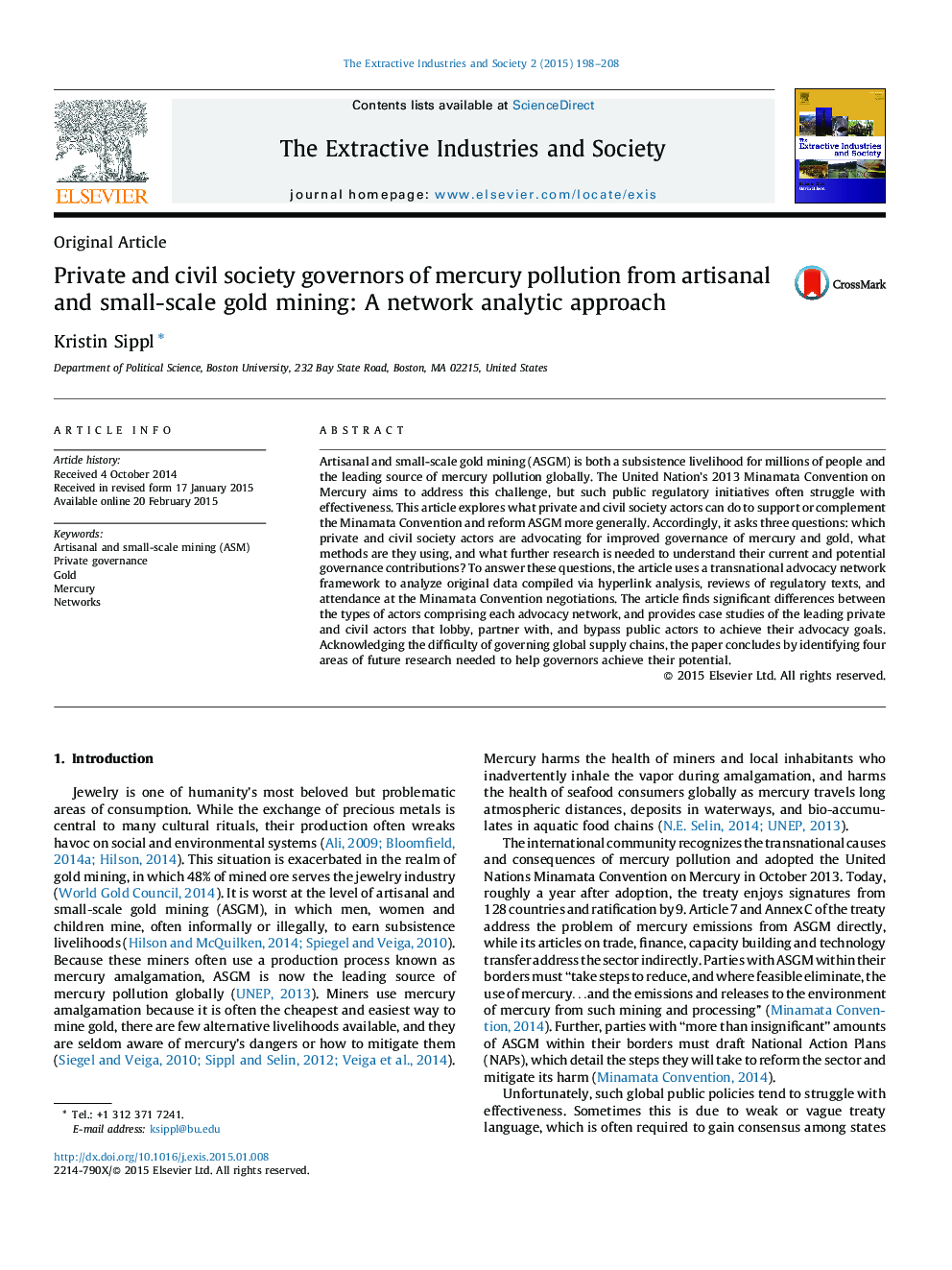| کد مقاله | کد نشریه | سال انتشار | مقاله انگلیسی | نسخه تمام متن |
|---|---|---|---|---|
| 1047486 | 945261 | 2015 | 11 صفحه PDF | دانلود رایگان |
• The Minamata Convention may struggle to reduce mercury pollution from artisanal and small-scale gold mining (ASGM).
• Private and civil society actors, not public ones, lead ASGM advocacy networks.
• Alliance for Responsible Mining (ARM) and Fairtrade International (FLO) govern via certification schemes.
• For gold produced without chemicals, ARM pays more when the gold price is lower, but FLO pays more when it is higher.
• All actor types must cooperate to make minerals a benefit (not a curse) to society.
Artisanal and small-scale gold mining (ASGM) is both a subsistence livelihood for millions of people and the leading source of mercury pollution globally. The United Nation's 2013 Minamata Convention on Mercury aims to address this challenge, but such public regulatory initiatives often struggle with effectiveness. This article explores what private and civil society actors can do to support or complement the Minamata Convention and reform ASGM more generally. Accordingly, it asks three questions: which private and civil society actors are advocating for improved governance of mercury and gold, what methods are they using, and what further research is needed to understand their current and potential governance contributions? To answer these questions, the article uses a transnational advocacy network framework to analyze original data compiled via hyperlink analysis, reviews of regulatory texts, and attendance at the Minamata Convention negotiations. The article finds significant differences between the types of actors comprising each advocacy network, and provides case studies of the leading private and civil actors that lobby, partner with, and bypass public actors to achieve their advocacy goals. Acknowledging the difficulty of governing global supply chains, the paper concludes by identifying four areas of future research needed to help governors achieve their potential.
Journal: The Extractive Industries and Society - Volume 2, Issue 2, April 2015, Pages 198–208
